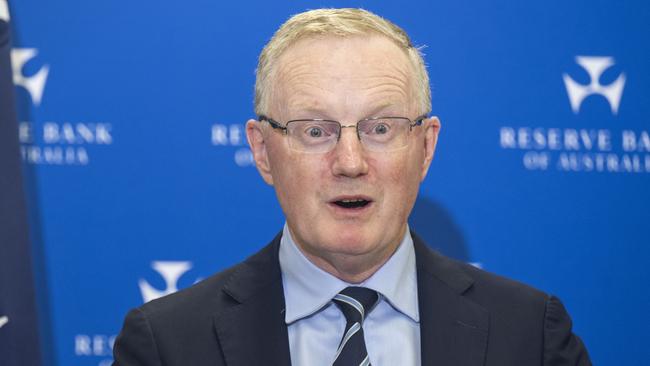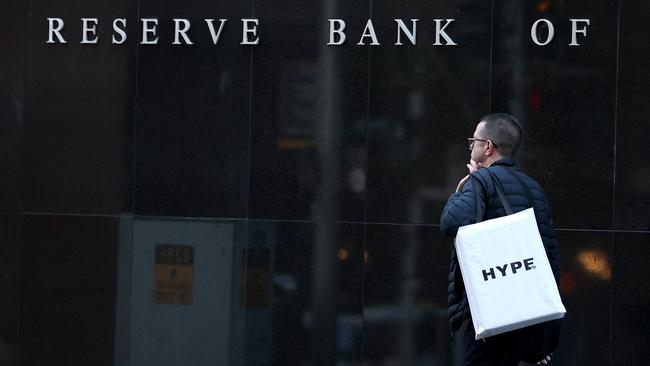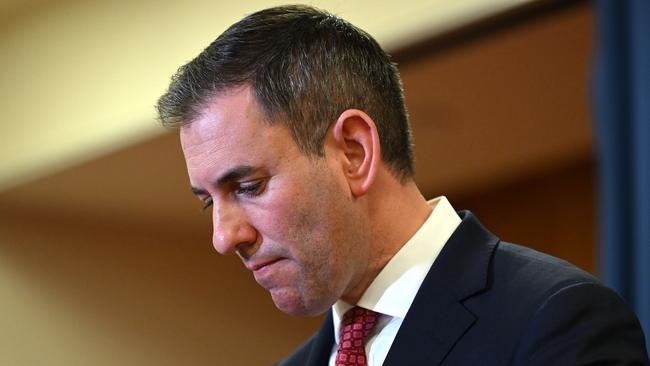RBA raises interest rates for fourth straight month, Jim Chalmers says it will make life tough
Mortgage holders won’t be the only ones feeling the hit now that the nation’s central bank has raised interest rates for the fourth-straight month.
Business
Don't miss out on the headlines from Business. Followed categories will be added to My News.
Australian homeowners will need to find an extra few hundred dollars a month to pay their mortgage, after the Reserve Bank hiked up interest rates for the fourth month in a row on Tuesday.
The official cash rate is now up 50 basis points to 1.85 – up from the record-low 0.1 it was up until May.
It’s also the first time the central bank has raised interest rates for four-straight months since the RBA set its target of 2 to 3 per cent inflation in 1990.
Governor Philip Lowe said the RBA had made the decision to raise the rates in a bid to drive down the current 6.1 per cent inflation figure.
In a statement, he said the path to returning to inflation under three per cent while keeping the economy on an even keel was something that would take time.
“The path to achieve this is a narrow one and clouded in uncertainty, not least because of global developments,” Dr Lowe said in a statement.
“The outlook for global economic growth has been downgraded due to pressures on real incomes from higher inflation, the tightening of monetary policy in most countries, Russia’s invasion of Ukraine, and the Covid containment measures in China.
“Today’s increase … is a further step in the normalisation of monetary conditions in Australia.”
Tuesday’s rate rise means those paying off the average home loan of $500,000 will have to cough up an extra $140 each month.

Dr Lowe said inflation was expected to peak later this year before declining back towards the 2 to 3 per cent range, with the Australian economy expected to continue to grow strong concurrently.
Dr Lowe said this month’s rate rise, as had been the case in the last three months, had been “required” to bring inflation back to target and create a sustainable balance of supply and demand.
He noted that the biggest cause for concern for the months ahead was the uncertainty caused by the behaviours of household spending.
“Higher inflation and higher interest rates are putting pressure on household budgets,” he said.
“Consumer confidence has also fallen, and housing prices are declining in some markets after the large increases in many years.
“The Board will be paying close attention to how these … factors balance out.”
Treasurer Jim Chalmers said he recognised today was “another difficult day” for Australians with a mortgage.
“This decision doesn’t come as a surprise; it’s not a shock to anybody, but we’re still seeing families who will now have to make more hard decisions about how to balance the household budget,” Dr Chalmers told Question Time, “in the face of other pressures like higher grocery prices and higher car prices and the cost of other essentials.”
Dr Chalmers said the interest rate hike would have a “broader economic impact” beyond mortgage holders.
“There’s also an impact on the budget,” he said.
“It means that the $1 trillion of debt the previous government left us will be even more expensive for us to challenge.”

There have been calls for Dr Lowe to step down from his role, given he had forecast the record low cash rate of 0.1 per cent would continue into 2024.
Earlier, Prime Minister Anthony Albanese threw his support behind the governor on Tuesday morning.
“He does (have our support). The RBA does have our support. They are an independent authority,” he said.
Dr Chalmers also said it “wasn’t the time” to “take potshots” at Dr Lowe.
“I’ve got a Reserve Bank review for a reason … That’s not about taking potshots at anyone,” Mr Chalmers said.
“The Reserve Bank governor himself multiple times now has been quite upfront … He has said publicly that circumstances changed faster than the Reserve Bank anticipated.”
Mr Chalmers said the point of the government’s review was to ensure that going forward, Australia had “the best monetary policy setting in the world”.
“The bank … (is trying) to get a handle on this inflation in our economy,” he said.
“(We want) to try to make the economy grow faster without adding to these inflationary pressures.”

Already, the rise in interest rates has pushed house prices down in most major cities as borrowers stare down the barrel of higher monthly payments.
Last week, the Australia Institute’s chief economist, Richard Dennis, told NCA NewsWire the RBA was one of the biggest threats to the economy at the moment.
“If we keep increasing interest rates because inflation is higher than we’d like, we might cause a recession,” he said.
“Increasing interest rates won’t help us prepare for a slowing global economy … but they might actually further dampen the Australian economy.”
Government Services Minister Bill Shorten said he wanted banks to improve the rate of return for deposit holders.
“They are pocketing some of this money through the increased interest rates, and at the very least, the banks should be passing some of that on to deposit holders,” he told the Nine Network.
Mr Chalmers said savers “deserved” higher rates on their savings.
“I would encourage people, if you are being let down by your bank – find a better deal if you can,” he told Channel 7.
Originally published as RBA raises interest rates for fourth straight month, Jim Chalmers says it will make life tough


